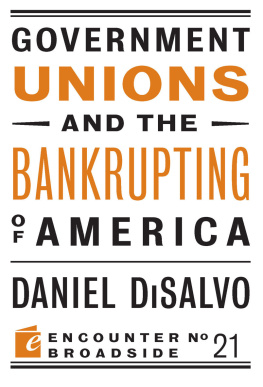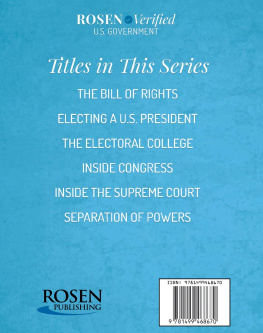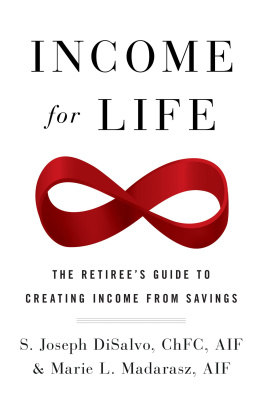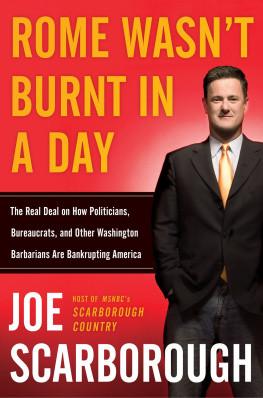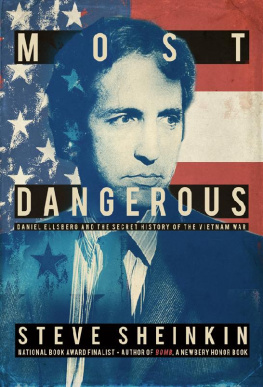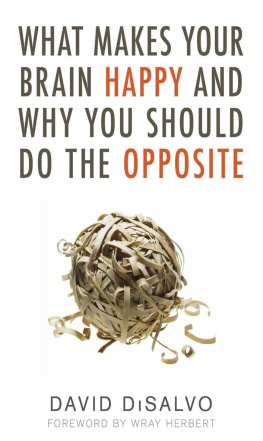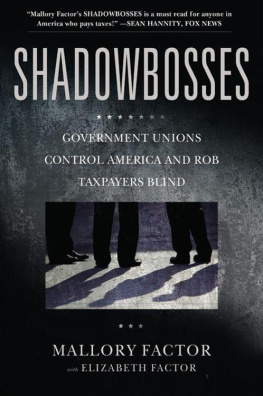T HE G REAT R ECESSION has exposed to public scrutiny the generous pay and benefits that many government employees receive. At a time when many states (to say nothing of that superstate, the federal government) are staggering under unprecedented debt, the Shangri-la of public-sector, government unions has aroused widespread criticism as well as the envy of average workers in the private sector. In February 2011, the newly elected Republican governor of Wisconsin, Scott Walker, gave voice to those resentments, saying, We can no longer live in a society where the public employees are the haves and the taxpayers who foot the bill are the have-nots. Addressing the issue of fiscal continence as well as the issue of fairness, Walker sparked a national debate over the legitimacy and desirability of a unionized government workforce. His proposal called for the states public employees to pay a bit more of their pension and health care costs (still less than the national average for government workers and far less than the private-sector average); it rolled back collective-bargaining rights for most government workers; and it took the state out of the business of collecting union dues. Walkers proposals elicited a heated response from public employees and their Democratic allies. Some 60,000 protesters descended on the state Capitol in Madison, and teachers effectively went on strike for a couple days by calling in sick in large numbers. Democratic state senators fled to Illinois to prevent a vote on the measure. Even President Obama accused Walker of launching an assault on unions. Nevertheless, after three weeks of fruitless negotiations with absentee Democrats, Walker and his Republican colleagues in the Legislature forged ahead and enacted significant changes to Wisconsins public labor laws.
The steps taken by Wisconsins Republican leaders have quickly been seconded in Ohio, where the states governor, John Kasich, and the state Legislature are, as of this writing, close to passing similar measures. The legislative battles playing out in the Midwest follow on the heels of actions taken by New Jerseys hard-charging governor, Chris Christie, who improbably became a national celebrity through his battles with his states public-employee unions. Christie targeted for reform the burdens that public workers health and pension benefits place on the Garden States long-term finances. He dared to propose measures that just yesterday were considered impossible or political suicide. The teachers unions reacted with fury, spending millions on attack ads in 2010 to block Christies proposals. Yet in cooperation with a state Legislature controlled by Democrats, Christie has changed pension rules, instituted a 2 percent property-tax cap, and required teachers to make small contributions to their health insurance plans. He is now seeking to reform the teacher tenure system.
Other states such as Nevada, Michigan, New York, California, and Pennsylvania are also revisiting the status and role of unionized government workers in their politics. The reason for this wave of concern is that in the past half-century, unions representing public servants have become political powerhouses. In recent campaigns and elections, they have provided large sums of money to candidates, almost all of it to Democrats, at all levels of government. They make huge independent expenditures on campaign ads, again almost always for Democratic candidates. In addition, they provide the foot soldiers for voter registration and get-out-the-vote drives. Were the big dog, says Larry Scanlon, the political director of the American Federation of State, County, and Municipal Employees (AFSCME), the largest union of government workers in the country. AFSCMEs website brags that candidates all across the country, at every level of government have learned to pay attention to AFSCMEs political muscle. And the union has used that formidable muscle to elect allies and secure generous pay and substantial benefits for their members at significant cost to taxpayers.
In the past half-century, unions representing public servants have become political powerhouses.
The main reason for the unions success is that the political process affords public-sector unions much more influence over their members employers that is, the government than private-sector unions could ever dream of. Government unions help elect politicians who then act as management in negotiations over pay, benefits, and work rules. We elect our bosses, so weve got to elect politicians who support us, AFSCMEs website flatly states. The result is a cycle that is hard to break. Unions extract dues from their members and funnel them into politicians campaign war chests, then those same politicians agree to generous contracts for public workers which in turn leads to more union dues, more campaign spending, and so on. It is a cycle that has dominated the politics of some of Americas states with dire consequences.
The principal function of unions is to represent their members interests. Therefore, those in the public sector have interpreted the reform proposals of Christie, Walker, and Kasich as a serious threat. Defenders of public-employee unions, like former Secretary of Labor Robert Reich, have charged that humble public workers are being targeted as scapegoats for the Great Recession. They argue that most government employees live modest lives and arent paid better than workers in the private sector. Criticizing public servants, they say, only serves to divert attention from the corporate executives who perpetrated todays economic crisis. The unions help sustain a professional public service and preserve a segment of the hard-pressed middle class that would otherwise be thrust into a cruel race to the bottom. The arguments of the unions and their defenders have some merit. But ultimately, they are unpersuasive.
Attention to government unions has revealed two pressing problems: First, the unions exercise considerable political clout in a partially acknowledged symbiosis with the Democratic Party, and second, the economic consequences of that alliance are fiscally unsustainable promises and inflexible government. These two interrelated problems were present before the financial crisis, but when it took the economic tide out, the strain on government finances and taxpayer wallets was readily apparent. In the wake of the Great Recession, it has become clear across the country that the road to genuine reform runs straight through these unions. How to deal with them and their Democratic allies presents state and local officials with a huge challenge that is likely to occupy them for years. But deal with them they must: Business as usual with public-sector unions has produced staggering government obligations. The stakes in these battles are high. They involve the long-term fiscal health of the nation, the balance of power between the nations two political parties, and the governments efficiency and effectiveness. Ultimately, insofar as the fiscal health of the country is at stake, we are confronted with a threat to the power and prestige of the United States on the world stage.

